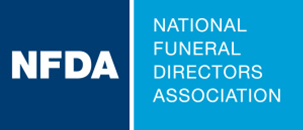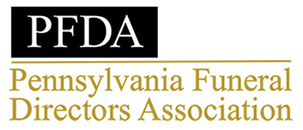
You may already know that one of the first steps to planning traditional funeral services is to write a funeral program.
While this is one of the simplest steps, writing a program for a funeral service can often go overlooked, especially when your family is going through an emotionally overwhelming time.
Why do you require a program for a funeral service?
When an individual passes away and friends and family come together to plan a traditional funeral in their honor, a printed funeral program is distributed to those attending the ceremony. The program is either designed by the funeral home director or a friend or family member of the deceased.
Either way, the family has to decide what needs to be included in the program. There’s a list of extensive information that needs to go into your program, so, if you’re in charge of this responsibility, the best way to do this is to enlist the help of other family members or friends to help you.
Gather the personal information
The first step to writing a program for a funeral service is to gather the relevant information. You can break up the list of information that’s required to make the planning and writing less overwhelming.
Personal information of the deceased:
- Full name including maiden name
- Dates of birth and death
- Surviving family members
When it comes to adding the names of surviving family members, it’s necessary to be as careful as possible. For example, if you have to include details about parents as well as step-parents, ensure that you are accurate with these details.
Additional information
- A brief biography
- Photographs of the deceased
- Names and pictures of pets
- Dates and places of employment
- Hobbies, including favorite songs, television shows, and books
You can also go a step further and add details such as the deceased’s community engagement, their early life, and professional achievements.
Adding additional information makes your program longer and will take longer to create, but it can make for a more heartfelt tribute. A more comprehensive and printed program is best suited for the format of a program booklet.
If you prefer a shorter program, limit it to only personal information. What you add depends on how extensive you need the program to be.
Include details about the funeral service
After the personal information about the deceased, include the necessary details about the funeral service. This will allow the guests to understand the sentiment and meaning behind certain practices such as the choice of a certain venue or songs and poems that will be performed.
Basic information you need to provide about the service includes the time, place, and date of the service, time and place of the reception, sentiments of gratitude from the family to the guests, and names of the pallbearers, the officiant, and the person delivering the eulogy.
Additional information required for this includes the titles and artists of songs being played or sung, and titles and references to any readings or poems.
Get the details required for religious ceremonies
For strictly religious services, the details are slightly different—most religious ceremonies will include the following:
- Organ prelude
- Invocation
- Bible reading
- Hymn selection
- Name of person or persons giving the eulogy
- Name of the vocal soloist
- Benediction
- Postlude music
You can discuss the plans with the minister or the officiant from your religious center to find relevant details about the religious ceremony.
Put your program together
A simple word processing software is all you need to help you create a layout for your program but, you can also take it a step further and use a downloadable app or a funeral program template.
Here is some good etiquette to be followed when compiling all the information:
- Use good-quality images of the deceased and make sure they are cropped appropriately.
- Use one or two scripted fonts to keep the document from looking sloppy and busy.
- Stick with black type on white or cream-colored paper to make it look professional and suitable for a funeral.
But it’s also understandable if you don’t want to go through this process while trying to cope with the death of a loved one. Finding the relevant information itself can be overwhelming, so you can simply rely on your funeral home director to compile the program for you once all the information is gathered.
An informative funeral program is helpful for all attendees
Guests—close and distant—can understand the funeral service, rites, and traditions better with an informative funeral program.
Whether compiled by a family member or by your funeral director, a well-written program for a funeral service will help make the customs more meaningful for everyone present.



